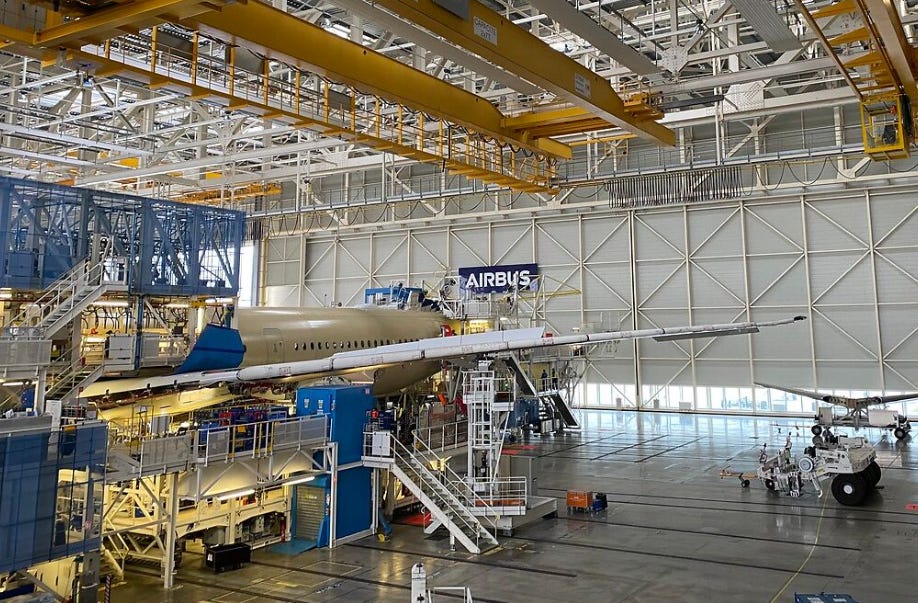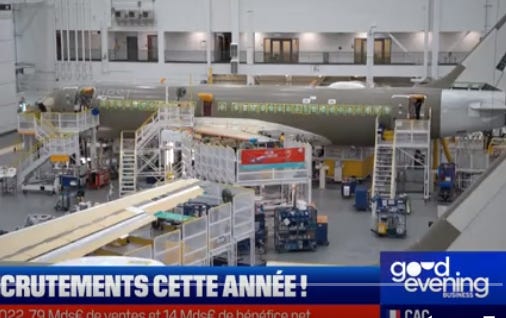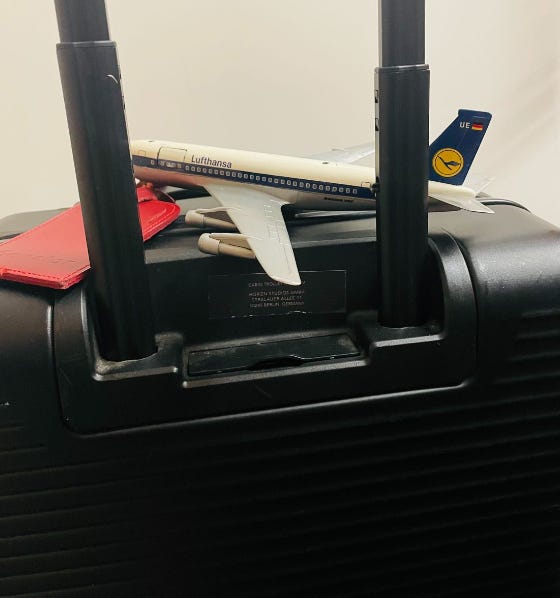Airbus will recruit more than 13,000 people globally in 2023, as international air travel recovers across all markets — 7,000 of these positions will be newly created posts across Airbus. So far in LinkedIn still listed 2,300, not 13,000.
The global recruitment drive will focus on technical and manufacturing profiles, as well as “acquisition of new skills supporting the company's long term vision, in areas such as new energies, cyber and digital” Over 9,000 of these posts will be in Europe. Airbus tries to accelerate output of its commercial jets to meet rising travel demand. Airbus also is set to invest £100m and create over 500 jobs at its Broughton wing manufacturing plant. No data about Bagnac Touluse France or Hamburg.
Airbus rival, Boeing, also recruit more.
Boeing’s trajectory as it strives to dig out of a deep hole is strangely the inverse of the giant tech companies.
Google, Microsoft, and Meta all made billions every quarter last year and are now busily laying off tens of thousands of employees.
Boeing lost $5.1 billion in 2022, while it hired 23,000 new people, according to employment figures released Friday.
With attrition and retirements, Boeing’s worldwide workforce grew last year by nearly 14,800 net, bringing the total to 156,354.
And this year, Boeing says it plans to hire 10,000 more, mostly in manufacturing and engineering jobs.
A state-by-state breakdown of Boeing’s employment figures posted annually on the company website and updated Friday shows that Boeing employment in Washington state grew 8% in 2022, adding more than 4,400 net jobs.
That brought Boeing’s workforce in Washington on Jan. 1 to 60,244, making it the second largest private employer behind Amazon, which has about 85,000 employees in the state.
The bump up in Boeing’s workforce here comes after two years of substantial job losses.
In 2020, when the pandemic first paralyzed air travel and with the 737 MAX still grounded, Boeing shed a total of nearly 15,000 jobs in Washington. In 2021, it shed more than 1,000 more.
For Boeing, the need is even more urgent. Its business was hit not only by the pandemic but also the nearly two-year grounding of the 737 MAX after the fatal crashes and the prolonged stoppage in 787 deliveries due to quality defects.
Though both planes have resumed deliveries, MAX production remains slow and 787 production is at a crawl.
To try to regain some of the significant market share lost to rival Airbus and to generate the cash it needs to recover its position, Boeing must ramp up the production rates of those jets.
It needs mechanics to work the assembly lines and also to do necessary rework on the hundreds of MAXs and 787s still in storage.
It needs engineers to work with the mechanics in those factories, engineers to finish certifying its latest MAX 7, MAX 10 and 777X models, and engineers to work on key defense products.
At the more esoteric and scary heights of Boeing research, engineers are developing military technology to rival anything the tech giants are doing.
=========
Encore une vague de recrutements chez Airbus : l'avionneur prévoit d'embaucher 13.000 salariés en 2023, dont 7.000 créations de postes. Des embauches pour répondre à la montée en cadence de la production et pour préparer les technologies de l'avion vert.
Les deux tiers de ces 13.000 embauches auront lieu dans les quatre principaux pays d'implantation du groupe : la France, l'Allemagne, le Royaume-Uni et l'Espagne. L'an dernier, en 2022, Airbus avait déjà recruté 7.000 salariés supplémentaires et 6.000 pour remplacer les départs naturels, un "record historique", selon l'avionneur. On ne sait pas quelle proportion des ces effectifs seront affectés au site de Toulouse.
Ce besoin de salariés est lié à la montée en cadence d'Airbus, notamment pour ses monocouloirs A320 et A220. L'entreprise qui produisait quarante A320 par mois pendant la pandémie, compte passer à 65 appareils mensuels en 2024 et à 75 vers 2025.
La pandémie de Covid-19 avait conduit Airbus à réduire drastiquement ses cadences de production et à annoncer 15.000 suppressions d'emploi. Le dispositif avait été revu à la baisse à la faveur des aides publiques comme le chômage partiel mis en place par les États pendant la crise sanitaire. Airbus emploie actuellement 130.000 salariés.
Toutes les divisions du groupe sont concernées par ces embauches : 60% concernent la branche Avions commerciaux, 25% la division Défense et espace et 15% Airbus Helicopters. Airbus est l'un des principaux industriels chargés de développer le système de combat aérien futur (Scaf), voulu par Paris, Berlin et Madrid.
Airbus va également embaucher dans de nouveaux métiers liés à la décarbonation, à la transformation numérique et à la cybertechnologie. L'avionneur étudie notamment le développement d'un avion à hydrogène à l'horizon 2035. Pour ce faire, Airbus devra revoir toute l'architecture de l'appareil.







